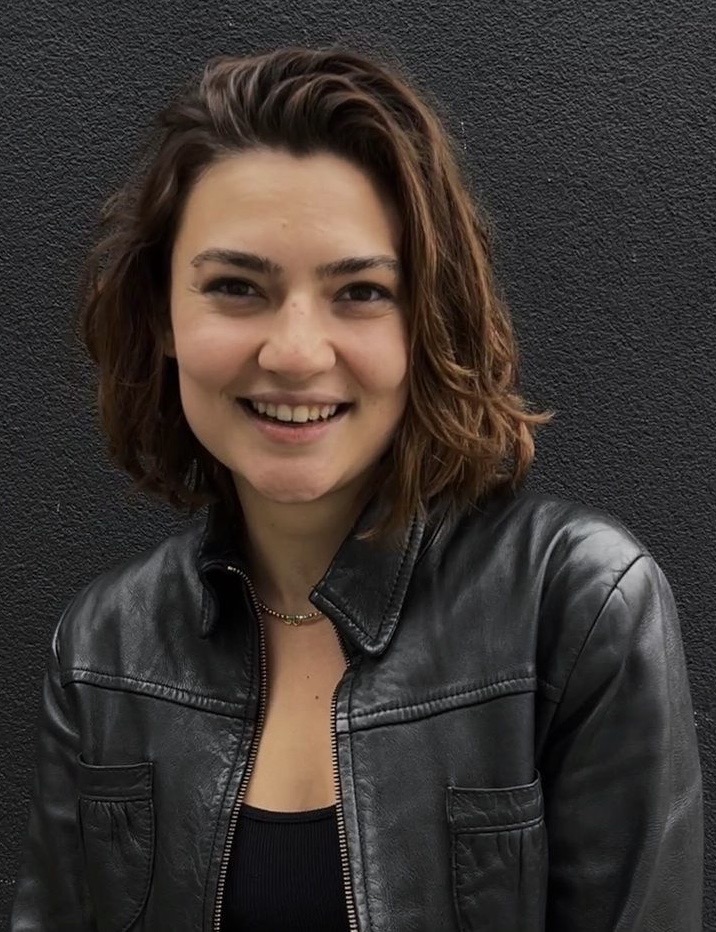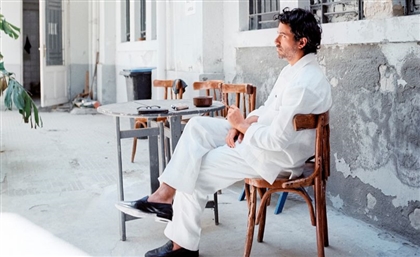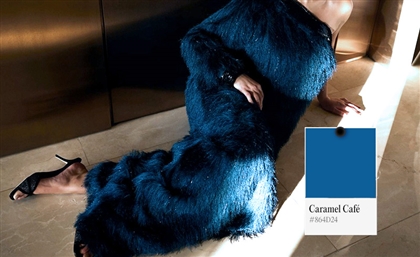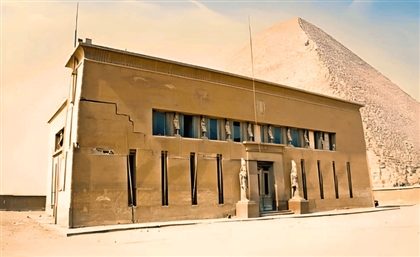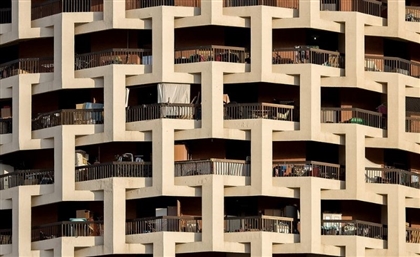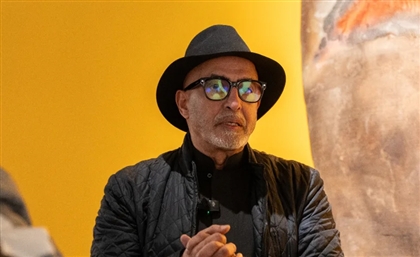Benzene: The Palestinian Satirical Label Fueling Chaos Kids
Benzene is a Palestinian streetwear label twisting familiar street staples into wry, politically loaded uniforms.
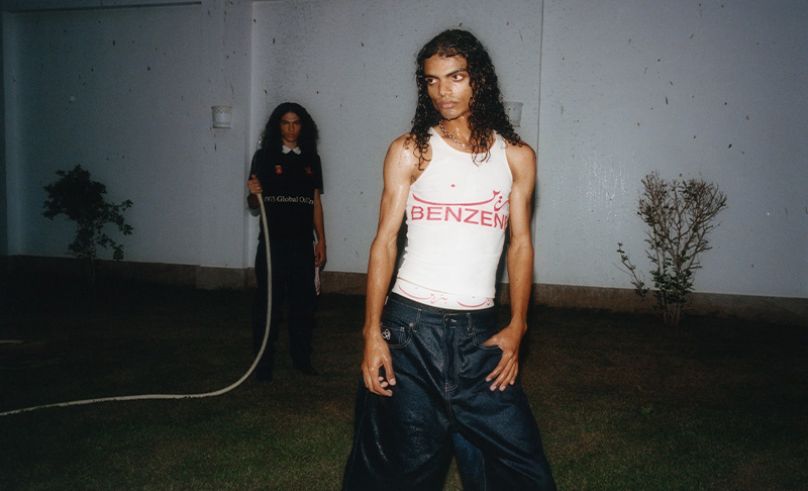
Originally published on November 19th, 2025
The first thing you notice about a Benzene call isn’t the fashion talk – it’s the WiFi malfunctioning across Barcelona. Three founders in one zoom call, one mic refusing to cooperate, another making a rollie, and an energy that sits somewhere between a family reunion and a political debate at 2AM. It’s fitting. Chaos is not an obstacle in their world; it’s the engine.
Benzene is the brainchild of three longtime friends: Ahmad Zaghmouri, a creative director with a CV that zigzags through Boiler Room, Star Wars, and Palestinian record label BLTNM; Omar Radejko, who went from running restaurants and fundraising initiatives to designing clothes in Palestine; and Saif Milhem, a pharmacist turned textile obsessive whose superpower seems to be detecting factory lies with the precision of a polygraph machine. Together, they form a brand that is best understood less as a fashion label and more as a running commentary on the world’s absurdities delivered as clothing.
“It all fell naturally,” Omar says, describing the moment they realized they might as well try fashion. Ahmad and Saif have known each other since they were kids, meeting Omar in Palestine nearly twenty years ago. After working on a charity for Palestine together, they quickly realized there was shared creative synergy between them. Before then, they had attempted everything else: restaurants, record labels, fundraising pop-ups. Fashion was the last unchecked box on the multihyphenate starter pack. Saif puts it more bluntly: “Fashion is the only thing that was left on the list.”
-4938a4a6-d23c-42e1-b9d1-3a3c4b0bc0a7.jpg) Their brand philosophy could be described as satirical activism disguised as streetwear, or as Omar calls it, “addressing the absurd nature of everything that’s happening.” They named their brand Benzene – yes, the chemical compound – because subtlety has never been their strong suit. Their early pieces include an “oil crisis polo,” a “decolonial racing camel polo,” and a “halal love” drift-core baby tee with blurred-out kufiyas. Nothing is sacred. Everything is material.
Their brand philosophy could be described as satirical activism disguised as streetwear, or as Omar calls it, “addressing the absurd nature of everything that’s happening.” They named their brand Benzene – yes, the chemical compound – because subtlety has never been their strong suit. Their early pieces include an “oil crisis polo,” a “decolonial racing camel polo,” and a “halal love” drift-core baby tee with blurred-out kufiyas. Nothing is sacred. Everything is material.
But beneath the humor sits a mission. They want to build what they call a “satirical house” for the kids of the Global South – the ones who skateboard in Cairo, drift cars in Lebanon, and make music in Ramallah, but don’t want to take Pepsi money to survive. “We want to be the Red Bull of the Global South kid,” Omar says, referring not to energy drinks but to the sense of backing, belief, and infrastructure.
Their approach to sustainability – another fashion buzzword they refuse to say politely – follows the same irreverent logic. They won’t call themselves eco-pioneers. They’ve simply discovered, through trial, error, and predictable factory deceit, that doing things properly means keeping production small, materials legitimate, and expectations realistic. Omar explains their denim proudly: Japanese selvedge, Portuguese stitching, no more than 100 units per piece. “We’re not trying to be the UN of sustainability,” he says. They’re just trying not to produce things for landfill.-70fd1a1a-7e8b-4434-8973-a6c96f890467.jpg) Saif, meanwhile, is the resident realist. He has an Excel sheet documenting every factory they’ve ever worked with. Beside each entry he has notes like “lies,” “late,” or “will prioritize larger orders.” His perspective on the industry is simple: fashion is politics. “You don’t expect anything good from it,” he shrugs. “You just find a narrow street through the highway to then find a small street to go through it.” You can almost hear the Israeli checkpoints in his metaphor.
Saif, meanwhile, is the resident realist. He has an Excel sheet documenting every factory they’ve ever worked with. Beside each entry he has notes like “lies,” “late,” or “will prioritize larger orders.” His perspective on the industry is simple: fashion is politics. “You don’t expect anything good from it,” he shrugs. “You just find a narrow street through the highway to then find a small street to go through it.” You can almost hear the Israeli checkpoints in his metaphor.
Visually, the brand moves between cities the way the founders switch tabs during the call. For Ahmed it's personal, “not being able to go back home right now, I want to touch on the main cities that I feel have a strong connection with the global south.” Cairo – “our Tokyo,” as Ahmad calls it – anchors the brand, a cultural supercontinent of Arab artistry. Naples and Marseille form their European counterstatement: the middle finger to Paris and Milan. “It’s a big f*** you,” Ahmad explains, chuckling. They shoot in the cities that reflect the people they care about, not the ones fashion cares to impress.
What do you think of the fashion creative director conveyor belt?
I think no one gives a f*** anymore, honestly. I think what's happening is that the big houses are now actually listening to us more.
Ahmad Zaghmouri | Co-Founder
What does the fashion industry owe you?
I look at it as politics. So you don't expect anything good from it. You just let it be and you work on your own way and find a highway around the political statements that f**** life up to find a narrow street through from that highway so you can enter the city.
Saif Milhem | Co-Founder
“I don't think he's talking about the man anymore” - Ahmad Zaghmouri
When is “authenticity” just good casting?
I don't think there is such a thing as authenticity. I think that's a huge lie. Is it like we are talking about a linear 2D paradigm of someone starting something and then no one can touch it. We all owe everything to what the Congolese Empire or the Iraqis did? I don't get what the point is. As long as you have your touch then white people shouldn't exist shall we just like burn everyone? I don't get it. See like we go there it's kind of counterproductive no? Everything is owned to the Chinese then.
What’s your policy on ugly?
I love it. I love ugly so much. There's no such thing as beautiful. I mean, what's the metric?
Ahmad Zaghmouri | Co-Founder
What does the algorithm misunderstand about your clothes?
Anything Palestinian. We’re sort of shadow-banned.
Omar Radejko | Co-Founder-fe3707c8-0f5d-4027-b4d0-3583420e6327.jpg) Yet they continue to poke fun at the fashion machine, the culture machine, and the world machine, knowing full well that attention spans shrink as quickly as empathy dissolves online.
Yet they continue to poke fun at the fashion machine, the culture machine, and the world machine, knowing full well that attention spans shrink as quickly as empathy dissolves online.
What’s next? A Barcelona pop-up, winter drops, and collaborations they won’t talk about yet. Benzene isn’t trying to make sense. It’s trying to make noise. And in an industry full of conveyor belts, mood boards, and moral performance, their absurdity feels like the most honest thing fashion’s can say.







